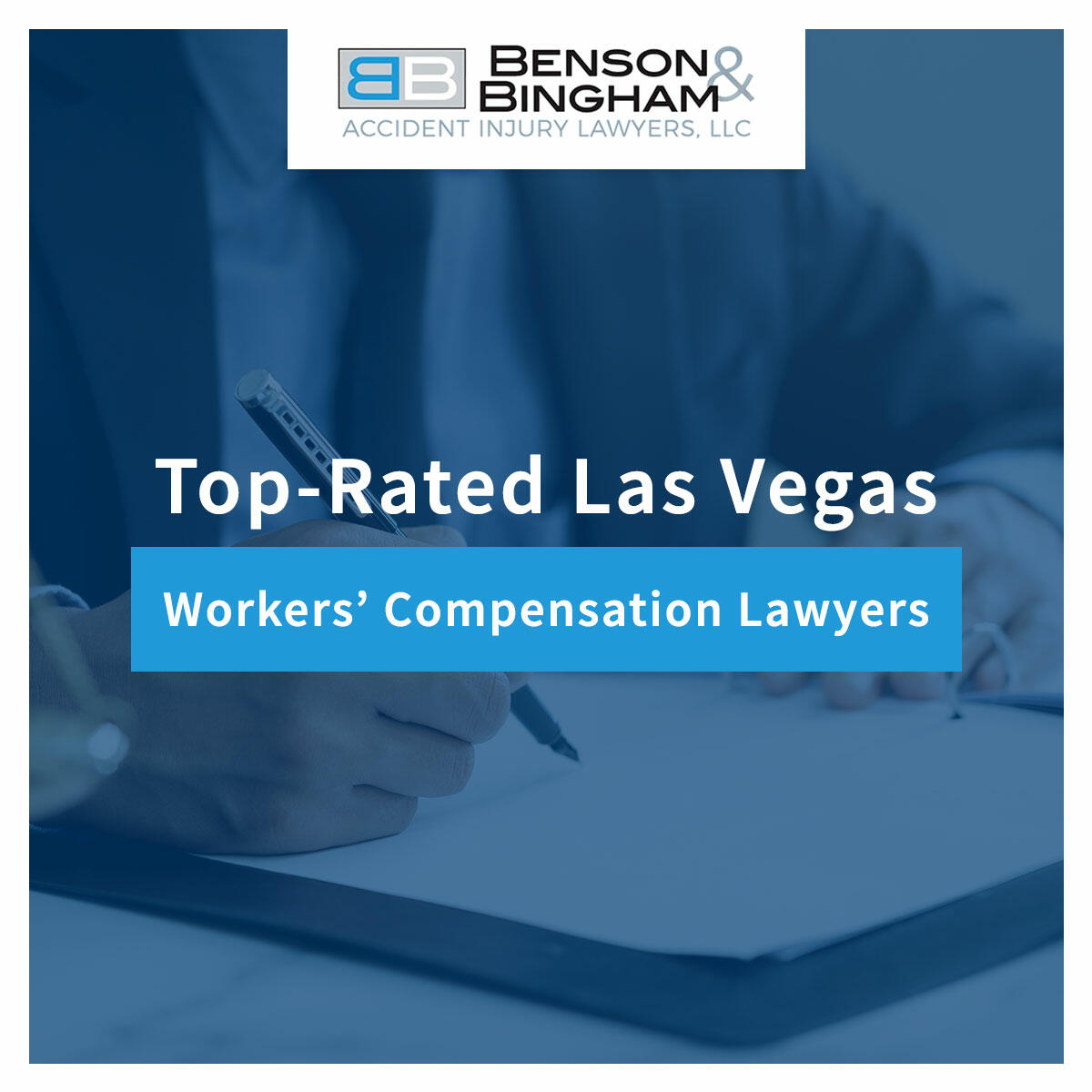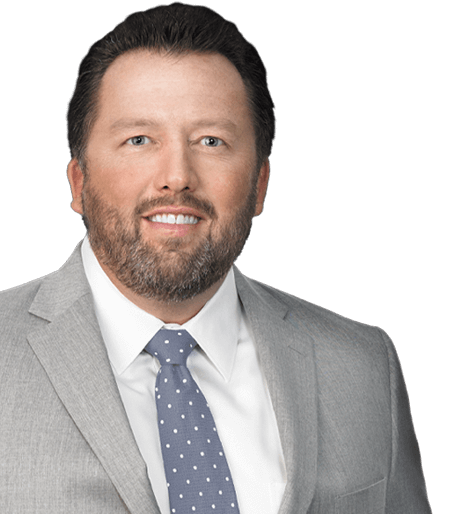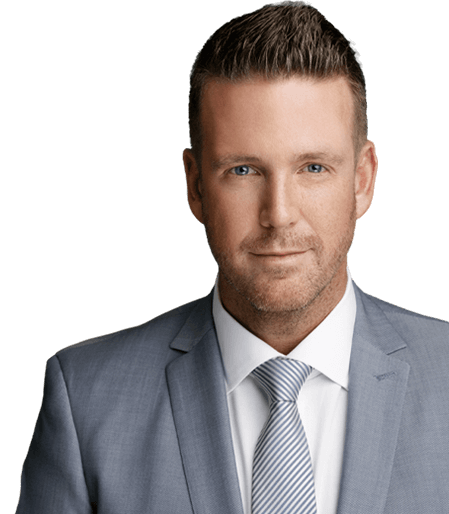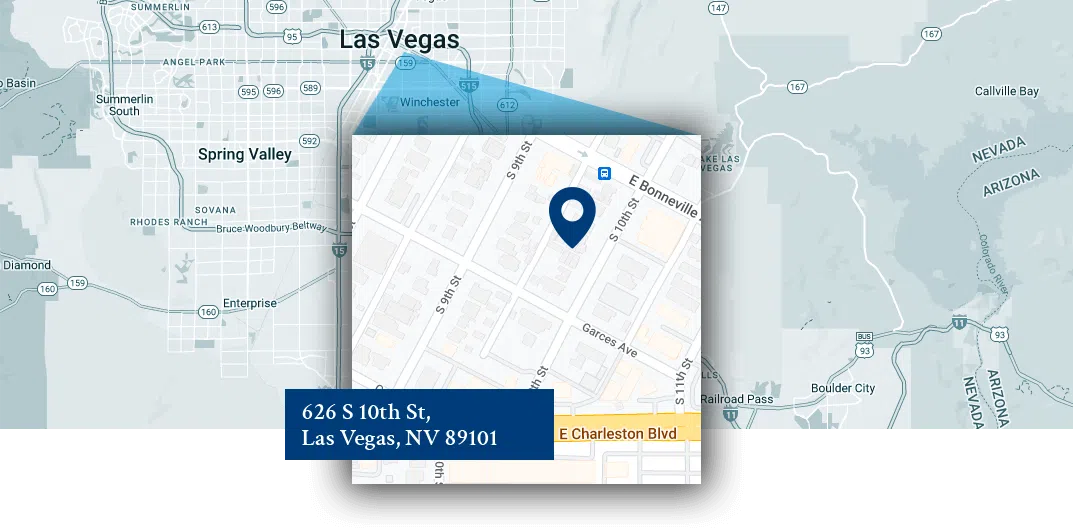Table Of Contents
- Meet Our Leading Vegas Worker’s Comp Attorneys: Joseph L. Benson II, Esq. & Ben J. Bingham, Esq.
- An Overview Of Workers’ Comp Claims in Las Vegas
- How Our Vegas Workers Comp Law Firm Can Help
- Client Testimonials
- Frequently Asked Questions On Worker’s Comp And Available Resources
- Benson & Bingham’s Notable Workers’ Comp Victories
- What Types of Injuries Does Workers’ Compensation Cover?
- Visit Our Workers Comp Law Office In Vegas
- Learn More On Workers Comp Inside Our Personal Injury Blog
- Contact Benson & Bingham Injury Compensation Attorneys for a Free Consultation
Meet Our Leading Vegas Worker’s Comp Attorneys: Joseph L. Benson II, Esq. & Ben J. Bingham, Esq.
Over 25 Years Of Experience In Las Vegas Personal Injury Law
Navigating the intricacies of workers’ compensation claims in Las Vegas can be daunting, especially for those dealing with work-related injuries or illnesses. Our dedicated team of expert workers’ comp lawyers understands the challenges injured employees face and is well-equipped to handle the complexities of filing claims. We ensure that all necessary requirements are met to increase the chances of a successful claim, providing much-needed support during difficult times.
In Las Vegas, many workers struggle to secure the compensation they deserve following an accident or dangerous condition at work. Over 25 years, our Vegas accident attorneys have helped injured and sick workers obtain the funds needed to cover medical bills and lost income. We are committed to fighting for your rights, ensuring you receive just compensation from workers’ comp and other sources. Contact us today to learn more about how we can assist you.
Joseph L. Benson II, Esq., a prominent member of Benson & Bingham Accident Injury Lawyers, LLC, is highly regarded for his expertise in handling complex workers’ compensation cases. Drawing inspiration from his father’s legacy in personal injury law, Joseph adopts an all-inclusive approach to each case, addressing the unique needs of every client. His dedication ensures that clients receive personalized legal strategies aimed at achieving the best possible outcomes in workers’ compensation claims.
Ben J. Bingham, Esq. excels in building strong client relationships and effective communication, focusing on the intricate aspects of workers’ compensation law. His commitment to guiding clients through the complexities of their cases ensures they feel supported throughout the legal process. Ben’s detailed legal knowledge and compassionate approach make him a powerful ally in workers’ compensation litigation, providing clients with effective advocacy and personalized care.
Meet All Our Attorneys >Understanding Nevada’s Workers Compensation Laws and Types Of Benefits
Nevada’s workers’ compensation laws require employers with at least one employee to provide insurance covering work-related injuries or illnesses. In a traditional personal injury case, most people seek to recover compensation for pain and suffering, along with other expenses associated with the accident. In a Las Vegas workers’ compensation case, however, you cannot seek compensation for pain and suffering or other non-economic damages. This insurance covers all past and future necessary medical treatment costs, including:
Medical treatments, including doctor visits, hospital stays, surgeries, medications, and rehabilitation
Temporary Total Disability (TTD) benefits compensate for lost wages during your recovery period, ensuring financial stability. These benefits are calculated at 66 and 2/3 percent of your average monthly wage, as stipulated by NRS 616C.475. If an injury or illness causes a Las Vegas worker to miss work for five days within a 20-day period, consecutively or cumulatively, then the worker generally qualifies for TTD
Permanent Partial Disability (PPD) and Permanent Total Disability (PTD) benefits for long-term impairments
Burial expenses and financial support for dependents in case of work-related death

Workers’ compensation in Nevada offers medical treatment, compensation, and retraining for injured workers without needing to prove fault, ensuring quick and efficient benefit access while protecting employers from liability lawsuits. However, this system is complex and fraught with potential pitfalls. Benefits cover a variety of past and future losses, with the amount depending on factors like injury severity and necessary medical care. It’s crucial for employees to report injuries or illnesses promptly, as delays can reduce the benefits they receive.

Preparations for Filing a Workers’ Compensation Claim
When dealing with a workplace injury, preparing for a workers’ compensation claim can greatly enhance your chances of success. To streamline the process and ensure you gather all necessary information, consider compiling the following documents before meeting with your attorney:
Medical Records: All documentation of treatments, doctor visits, and prescriptions related to the injury.
Financial Documents: Paystubs, W-2 forms, and other records to verify your income.
Injury-Related Bills: Receipts for medical expenses, rehabilitation costs, and other related expenditures
Insurance Information: Details of your insurance policy and any correspondence with the insurance company
Photographic Evidence: Pictures of the accident scene and your injuries.
Workers’ Compensation Board Documents: Any communications or documents received from the workers’ compensation board.
Additional Evidence: Witness statements and other relevant proof to support your claim.
How Do I Initiate a Workers’ Compensation Claim in Las Vegas?
If you suffer an occupational injury in Las Vegas, follow these steps to ensure you get the workers’ compensation benefits you need:
Report Your Injury Promptly: Notify your employer immediately and complete a C-1 Form (Incident Report) while the details are fresh. Include the names of any witnesses and specifics about the accident. Capture photographs of the accident scene if possible. According to Nevada law, this form must be completed within seven days, but earlier reporting is beneficial.
Seek Medical Attention Right Away: Visit a hospital or medical provider as directed by your employer. If no direction is provided, seek medical care independently. For emergencies, go to any ER in Las Vegas. For non-emergencies, check if there’s a specific physician you must visit as per your employer’s insurance policy.
Complete the Necessary Paperwork: Bring a C-4 Form (Employee Claim for Compensation) to your doctor during your first visit. Your doctor will fill out their portion and submit it to the insurance company. Ensure this form is submitted within 90 days of the injury or the first notice of a work-related health condition.
Insurance Investigation: The insurance company has 30 days to investigate and decide on your claim after receiving the C-4 Form. Be proactive in following up.
Consult a Workers’ Compensation Attorney if Needed: If your claim is denied or delayed, consult a Las Vegas workers’ compensation attorney promptly. They can guide you through the appeal process and ensure you meet all legal deadlines.
Timely Filing and Follow-up: Keep track of all forms and submissions to avoid missing any deadlines, which could jeopardize your claim.
By following these steps, you can streamline your workers’ compensation claim process in Las Vegas and increase the likelihood of receiving the benefits necessary for your recovery.
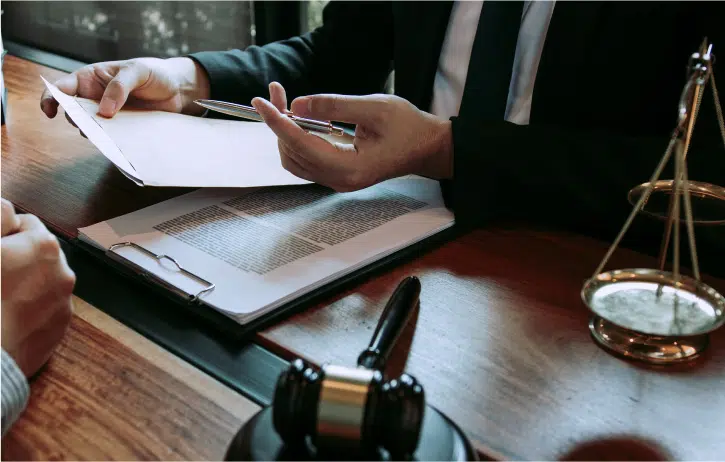
What Should I Do if My Compensation Claim Was Denied?
If your workers’ compensation claim was denied, it’s important to act promptly. First, review the denial letter to understand the reasons for the denial. Gather all relevant documentation, such as medical records and accident reports, to support your case. You have 70 days to appeal the letter denying your claim. Send the appeal to the Hearings Division. If the appeal is not received by the Hearings Division within the 70 days, you may lose your right to appeal (NRS 616C.315). File an appeal with the appropriate workers’ compensation board or agency within the specified time frame. There are two documents you must send to the Hearings Division: a copy of the denial letter itself and the Hearing Request Form. Fill out, date, and sign the form. You can get the form to request a hearing by clicking this Hearing Request Form link. Consulting with an experienced workers compensation attorney can be crucial at this stage. They can help you build a strong appeal, represent you at hearings, and increase your chances of a successful outcome.
Can I Choose My Own Doctor After a Workplace Injury in Las Vegas?
In Nevada, following a workplace injury, you generally need to visit a doctor from your employer’s approved list to ensure your workers’ compensation claim is valid. If dissatisfied with the initial doctor, Nevada law (NRS 616C.090) allows you to request a switch to another approved physician. An injured worker has the right to transfer their care to another treating physician on the insurance company’s list within 90 days of the date of injury. There may be instances where the right to an Independent Medical Examination may be invoked. For emergency treatment, you can go to the nearest ER, but make sure the injury is noted as work-related. Clear communication with your employer and their insurance carrier is crucial, and consulting a workers’ compensation attorney can help you navigate the process effectively.
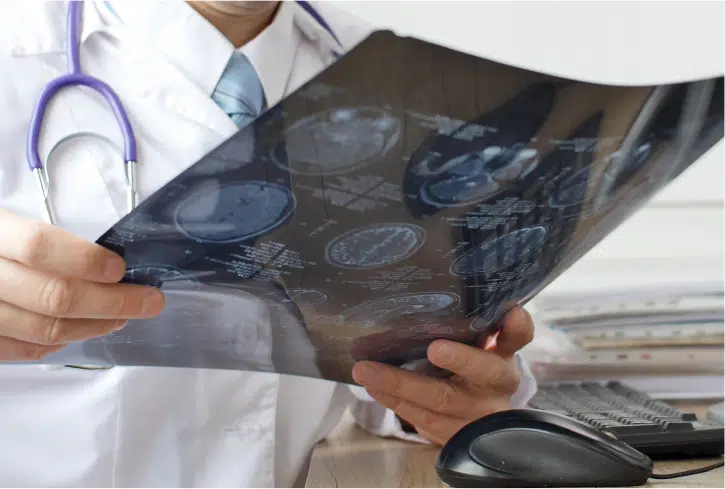
How Our Vegas Workers Comp Law Firm Can Help
We Understand What Makes Nevada Law Tick.
At Benson & Bingham, we prioritize your recovery and rights. Our seasoned attorneys offer support and top-notch representation from start to finish. We handle every aspect, from initial consultations to courtroom battles, ensuring you receive fair compensation for workplace injuries. Our personalized approach means constant communication and tailored strategies, so you never feel alone in the process. Whether it’s navigating insurance claims or pursuing legal action, we’re dedicated to your well-being and future. Trust Benson & Bingham to fight for you and secure the justice and compensation you deserve. Schedule a free consultation today.
Over $500 Million Successfully Claimed for Our Clients
With over $500 million successfully claimed for our clients, our law firm has a proven track record of excellence in handling workplace injury cases. Our dedicated team of experienced attorneys is committed to fighting for the maximum compensation you deserve.
Direct Access to Our Attorneys: Immediate, Personalized Legal Guidance
Experience direct access to our attorneys, who provide immediate and personalized legal guidance tailored to your specific needs without any middleman or delays. Our team is committed to offering prompt, effective support, ensuring you receive the attention and expertise required to navigate your workers’ compensation claim.
We Win or You Don’t Pay!
Our “We Win or You Don’t Pay” policy means your financial security is our priority. With us, there’s no risk: if we don’t secure compensation for you, you owe us nothing. Trust our experienced team to fight tirelessly for your rights and ensure you receive the support you deserve. Contact us today to schedule your free consultation and let us advocate for your recovery without any upfront costs.
Customized Approach in Every Workers’ Compensation Case
At Benson & Bingham, we recognize that every workers’ compensation case is unique. Our customized approach ensures that each client receives tailored strategies and dedicated attention. From initial consultation to final resolution, we meticulously handle every detail, addressing your specific needs and concerns. Our personalized service guarantees that you are fully supported and informed throughout the process, ensuring the best possible outcome for your case. Schedule a free consultation today to experience our bespoke legal services.
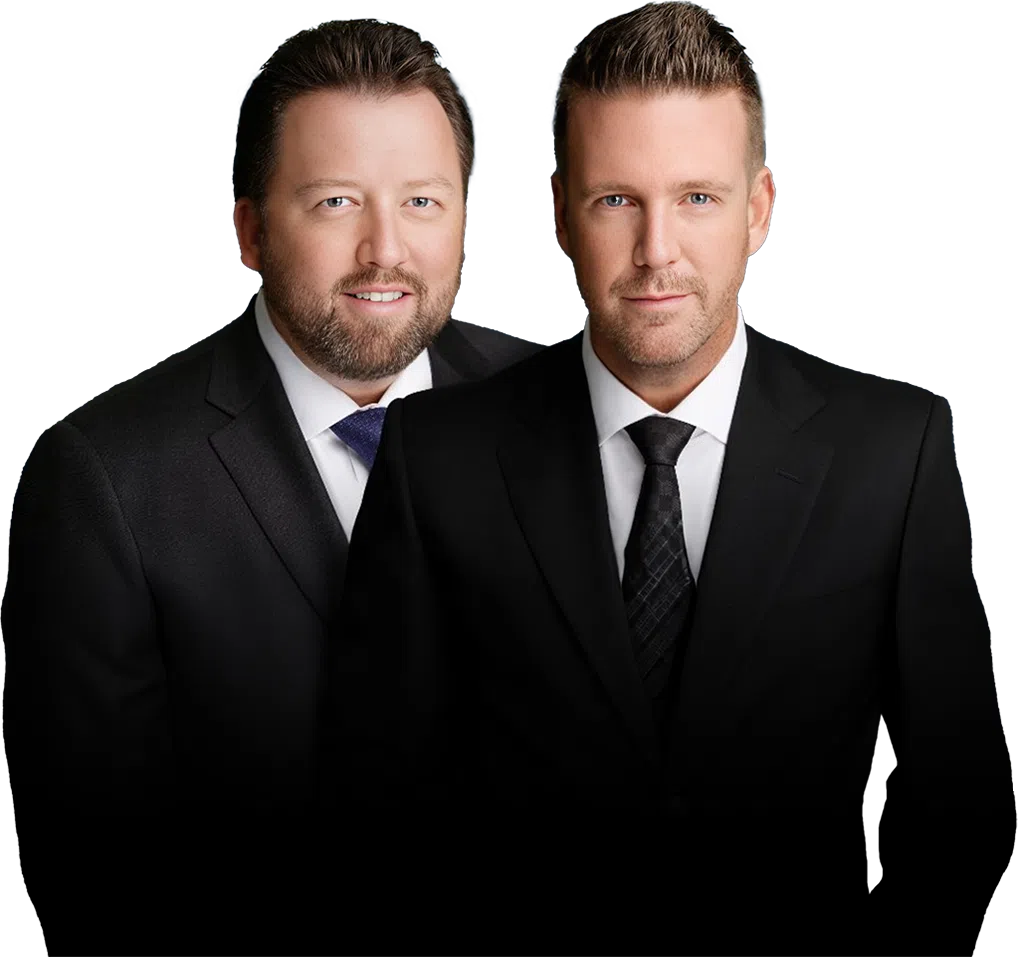
Client Testimonials
5-Star Rated Workplace Injury Law Firm In Las Vegas
We win or you don’t pay! Hundreds of Five Star Reviews.
Hundreds of Five Star Reviews.
Our clients consistently rate us 5 stars for our exceptional service and results. We are proud to be Las Vegas’ top-rated workplace injury law firm, dedicated to securing your rightful compensation.
I suggest using Benson & Bingham if you’re in need of an injury accident attorney! They have an amazing staff and made the entire process easy and stress free handling my case with compassion and a remedy of great efficacy!
Brandy Elliott ★★★★★
I picked this place and I’m so glad that I did. Ida was very helpful and professional. If I had questions they were answered. I would definitely use them again in the future and I would definitely recommend them to anyone. Thank you for your service I appreciate it.
Charissa Vanblerkom ★★★★★
What I love about Benson & Bingham, especially from my attorney, Lina, I felt informed and cared for my health. She made sure I was ok at all times through my injury. I hate I had the accident, but it was comforting to know I was well taken care of.
Sandra Burke ★★★★★

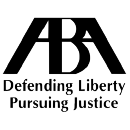

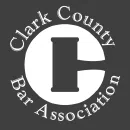
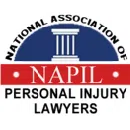


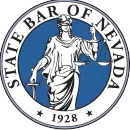
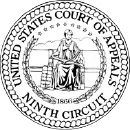
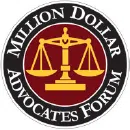

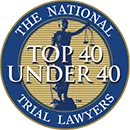
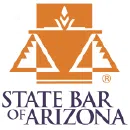
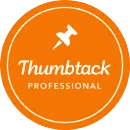
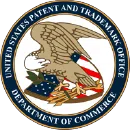




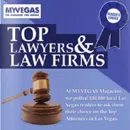

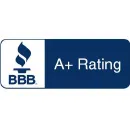




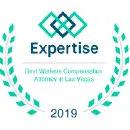

Frequently Asked Questions On Worker’s Comp And Available Resources
How Are Workers Compensation Payments Calculated?
Workers’ compensation payments in Nevada are calculated based on several factors. Medical expenses, including doctor visits and surgeries, are fully covered. Temporary Total Disability (TTD) benefits amount to 66.67% of your average monthly wage, subject to state limits, until you can return to work. Permanent Partial Disability (PPD) benefits depend on the degree of impairment, while Permanent Total Disability (PTD) benefits also provide 66.67% of your wage, typically for life. Death benefits include funeral costs and a portion of the deceased’s wage for dependents. Vocational rehabilitation may also be provided for retraining.
How Much Is a Typical Workers Compensation Settlement?
The amount of a typical workers’ compensation settlement varies widely based on the nature and severity of the injury, medical expenses, lost wages, and the degree of permanent disability. Settlements can range from a few thousand dollars for minor injuries to much higher amounts for severe, long-term impairments. Each case is unique, and our experienced attorneys can help you understand what to expect based on your specific circumstances, ensuring you receive a fair and adequate settlement.
Who Is Responsible for My Work Accident If I Reside In Las Vegas?
In Las Vegas, your employer is generally responsible for your work accident through their workers’ compensation insurance. This coverage is designed to provide benefits for medical expenses, lost wages, and rehabilitation costs, regardless of fault. However, if a third party contributed to your injury, you might have grounds for a separate personal injury claim. Our experienced attorneys can help you navigate both workers’ compensation and potential third-party claims to ensure you receive the full benefits and compensation you deserve.
What Should I Expect At a Workers Comp Appeal Hearing?
At a workers’ comp appeal hearing, you can expect a formal review of your claim by an administrative law judge. Both you and your employer will have the opportunity to present evidence, including medical records, witness testimonies, and any other relevant documentation. The judge will ask questions to clarify the details of your case. It’s important to have legal representation to ensure your rights are protected and to effectively present your case.
Do I Need a Lawyer to File a Workers Compensation Claim?
While it’s not mandatory to have a lawyer to file a workers’ compensation claim, having one can significantly improve your chances of a successful outcome. Workers’ compensation laws can be complex, and an experienced attorney can help you navigate the process, ensure all paperwork is correctly filed, and advocate for your rights. They can also represent you in case of disputes or appeals, helping you secure the maximum benefits you are entitled to. Our skilled injury attorneys are here to provide the guidance and support you need throughout your claim.
What Is the Cost of Hiring a Workers Compensation Lawyer in Las Vegas?
At Benson & Bingham, our Las Vegas workers’ compensation lawyers work on a contingency fee basis. This means our clients don’t pay anything unless we win their case and collect money for them. We do this because we believe that everyone deserves justice, regardless of their financial situation. When you hire us, you receive the full benefit of our experience and legal power to secure the highest possible settlement or verdict. We focus on maximizing your compensation while you concentrate on your recovery. Let us handle your case and alleviate the financial burdens during this challenging time.
What if My Employer Does Not Have Workers Compensation Insurance?
If your employer does not have workers’ compensation insurance, you still have options to seek compensation for your injuries. In Nevada, employers are legally required to carry workers’ compensation insurance, and failing to do so can result in penalties. You can file a claim with the Nevada Uninsured Employers’ Claim Account (UECA), which provides benefits to injured workers whose employers lack coverage. Additionally, you may have the option to file a personal injury lawsuit against your employer. Our experienced attorneys can help you navigate these alternatives, ensuring you receive the benefits and compensation you deserve despite your employer’s lack of insurance.
How Can a Las Vegas Worker’s Compensation Attorney Help?
- Investigating an injury or illness: Workers’ comp lawyers often investigate the accident or events that led to a worker’s injury or illness to uncover the facts and evidence supporting a workers’ claim to benefits. This can include obtaining police reports, medical records, and statements from expert witnesses. An employer will often require employees to go to a specific doctor for care, but an attorney can often arrange a medical exam with an independent doctor for a second opinion. Additionally, a skilled attorney may gather information about hazardous conditions and poor practices at a workplace to help show that work-related duties caused the injury or illness.
- Negotiating with insurance companies: Workers’ compensation lawyers understand state laws and how to deal with the questionable tactics and excuses that some workers’ comp insurance carriers use to deny claims. Lawyers are trained negotiators who know how to maximize an employee’s chances of receiving benefits and compensation. Insurance companies often avoid playing games when they know a sick or injured worker has an experienced attorney on board.
- Representing workers in appeals: The law provides for an administrative appeal for workers to challenge the denial of a workers’ comp claim. Appeals typically involve preparing written submissions and attending administrative hearings. Although the state Department of Industrial Relations claims workers do not necessarily need attorneys to help them with appeals, workers run a high risk of losing out on benefits if they go without legal representation in the appeal process.
- Litigating a case in court, if necessary: Experienced workers’ comp attorneys know when and how to take an injured or sick worker’s case to court to force insurance companies or third parties to pay the compensation workers need to put their lives back on track.
Why Is It Taking a Long Time to Determine if My Claim Has Been Accepted?
Several factors can contribute to delays in determining whether your workers’ compensation claim has been accepted. Common reasons include incomplete or missing documentation, ongoing investigations into the incident, or disputes about the extent of your injuries or their work-related nature. Additionally, high caseloads within the insurance company or workers’ compensation board can slow down the process. To expedite your claim, ensure that all required documents and information are submitted promptly and accurately. Our experienced attorneys can help you navigate these delays, communicate with the involved parties, help you understand the workers comp timeline, and advocate on your behalf, ensuring your workers’ compensation claim is filed correctly and any delay is addressed efficiently and promptly.
If I Am off of Work Due to a Work Injury, Will I Be Paid?
Yes, if you are off work due to an injury during the job, you may be entitled to receive workers’ compensation benefits, which typically include a portion of your lost wages. These benefits usually cover a percentage of your average weekly earnings, helping to replace income during your recovery period. The specific amount and duration of these payments depend on the severity of your injury and your state’s workers’ compensation laws. Our experienced attorneys can help ensure you receive the appropriate benefits and support while you are unable to work due to your injury.
Benson & Bingham’s Notable Workers’ Comp Victories
↓
The Recipe is Simple. Hard Work Delivers Outstanding Results
$500 Million Total Settled By Verdicts For Clients
With a proven track record of over $500 million successfully claimed for our clients, our law firm excels in handling workplace injury cases. Our dedicated team of experienced attorneys is committed to securing the maximum compensation you deserve.
$295 Thousand Casino Construction
Accident
In one case, we achieved a substantial $295,000 settlement for a client involved in a casino construction accident. This settlement ensured our client received the necessary compensation to cover medical expenses, lost income, and other damages resulting from the accident.
$265 Thousand Forklift Accident
In one case, we secured a significant $265,000 settlement for a client involved in a forklift accident. Our dedication to advocating for our clients ensures that they receive the compensation they deserve, no matter how challenging the case may be.
What Types of Injuries Does Workers’ Compensation Cover?
Slip-and-Fall Accidents
Slip and fall accidents accounted for nearly 15.7% of construction site accidents in 2022, according to the Occupational Safety and Health Administration. If you’ve experienced such an incident at work, you may be able to sue your employer for a slip and fall accident. it’s crucial to report it immediately, seek medical attention, and document the incident thoroughly. Our expert attorneys can help you navigate the workers’ compensation claim process, ensuring you receive the benefits you’re entitled to.
Workplace Electrocutions
Electrocution accidents in the workplace can occur in various ways, often due to unsafe working conditions or equipment malfunctions. Some examples of workplace electrocution accidents are contact with overhead power lines, improper grounding, exposed electrical parts, wiring errors, and more. Our skilled attorneys are ready to assist you through the workers’ compensation process, ensuring you get the compensation you deserve.
Heavy Machinery Injuries
Heavy machinery injuries in the workplace can be severe, often resulting from improper use, equipment malfunctions, or inadequate safety measures. Common examples include crushing injuries, amputations, and fractures caused by forklifts, cranes, and other heavy equipment. Ensuring proper training and adherence to safety protocols is crucial to prevent such incidents.
Hotel and Casino Worker Injuries
Hotel and casino workers face unique risks due to the demanding and fast-paced environment. Common injuries include slips and falls on wet floors, carpets, and around pools, as well as repetitive strain injuries from tasks like housekeeping and maintenance. Exposure to hazardous substances and injuries from handling heavy objects are also prevalent. Dealing with unruly patrons can lead to physical harm, making safety protocols essential for protecting workers.
Construction Site Injuries
Construction site injuries are often severe due to the hazardous nature of the work environment. Common injuries include falls from scaffolding, ladders, or roofs; being struck by falling objects; and accidents involving heavy machinery like forklifts and cranes. Additionally, workers may suffer from brain injury, spinal cord injuries, and exposure to harmful substances like asbestos. Proper safety training and adherence to safety protocols are crucial to prevent these incidents and protect workers from serious harm. Our Vegas Construction accident lawyers can help you obtain justice for any construction-related incident.
Burns & Scalds
Burn and scald injuries in the workplace can result from various hazards, including exposure to hot surfaces, steam, chemicals, and electrical sources. Common causes include contact with boiling liquids, malfunctioning equipment, and improper handling of hazardous materials. These injuries can cause severe pain, long-term damage, and require extensive medical treatment. It’s crucial to follow safety protocols and use protective equipment to minimize the risk of burns and scalds in the workplace.
Transportation Incidents While on The Job
Roadway incidents involving motorized land vehicles occur when an employee is involved in an accident while driving a car, truck, or any other motor vehicle as part of their job duties. This includes any travel required by your employer, such as deliveries, business trips, or commuting between job sites. If you are injured in such an incident, it is considered a work-related accident, and you may be eligible for workers’ compensation benefits.
Contact with Hazardous Substances or Chemicals
Contact with hazardous substances or forever chemicals at work can result in serious injuries or illnesses, including burns, respiratory issues, and long-term health problems. Common scenarios include spills, leaks, and improper handling of toxic materials. Promptly reporting the incident, seeking immediate medical attention, and documenting exposure details are crucial steps. Adhering to safety protocols and using appropriate protective equipment can help prevent these dangerous exposures.
Assault & Battery Cases
Assault and battery cases in the workplace can lead to severe physical and emotional trauma for employees. These incidents might arise from altercations with coworkers, customers, or other individuals. Workers’ compensation can provide benefits to cover medical expenses, lost wages, and rehabilitation for injuries sustained from such incidents. It’s important to report any assault immediately and document all details thoroughly to support your workers’ compensation claim and ensure you receive the necessary support for recovery.
Learn More On Workers Comp Inside Our Personal Injury Blog.
Contact Benson & Bingham Injury Compensation Attorneys for a Free Consultation
Locate Us
Our Locations
Enter your ZIP code to see which location is closer to you
